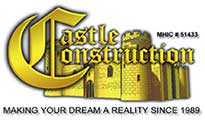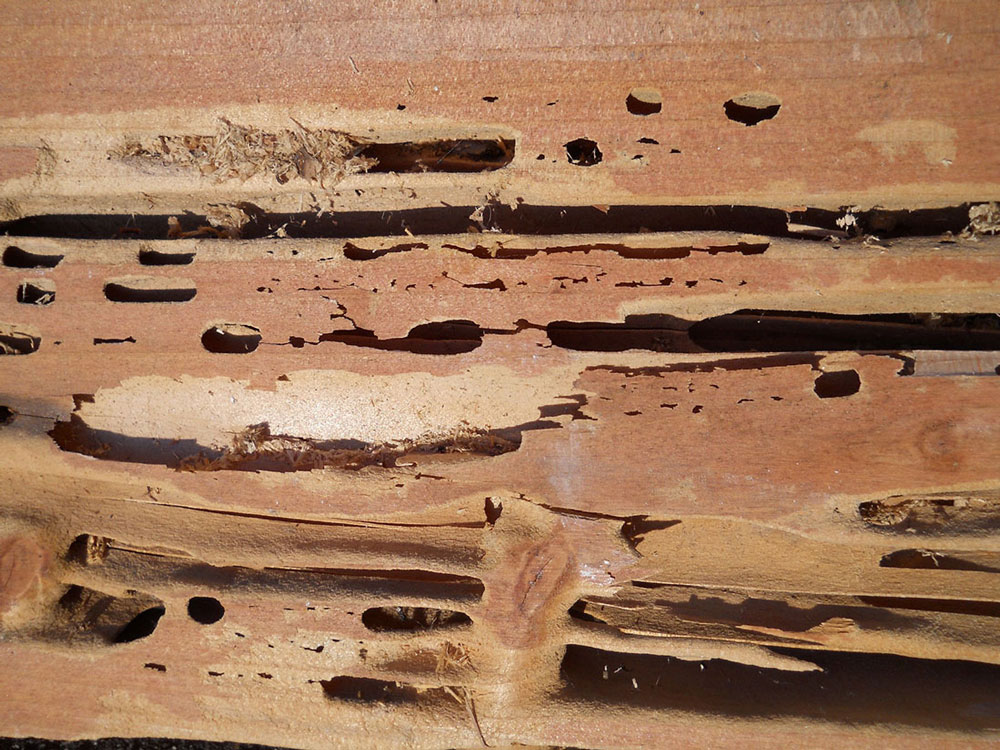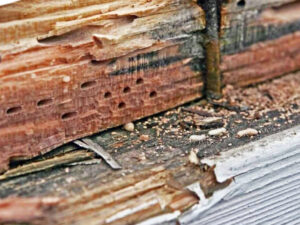Hardwood floors are a beautiful and durable flooring option that can last for decades. However, they are not immune to damage from insects. Insects such as termites, carpenter ants, and powder post beetles can cause significant damage to hardwood floors if left untreated.
Termites are one of the most destructive insects to hardwood floors. They feed on the cellulose in the wood, which can cause structural damage and weaken the flooring. Carpenter ants, while not as destructive as termites, can still cause damage by tunneling through the wood. Powder post beetles can also cause damage by burrowing into the wood and creating small holes.
Types of Insects That Damage Hardwood Floors
Hardwood floors are a beautiful addition to any home, but they can be vulnerable to damage from insects. Here are the three most common types of insects that damage hardwood floors:
Termites
Termites are known for their ability to eat through wood, and hardwood floors are no exception. They feed on the cellulose in the wood, which weakens the floor and can cause it to collapse. Termites are often difficult to detect, as they burrow deep into the wood and can go unnoticed for years. Signs of termite damage include hollow-sounding wood, buckling floors, and visible tunnels or galleries in the wood.
Powder post Beetles
Powder post beetles are another common culprit of hardwood floor damage. These beetles lay their eggs in cracks or crevices in the wood, and the larvae then feed on the wood as they grow. Over time, this can weaken the wood and cause it to become brittle. Signs of powder post beetle damage include small holes in the wood, fine sawdust or “frass” around the holes, and weakened or crumbly wood.
Carpenter Ants
Carpenter ants are often mistaken for termites, but they do not eat wood. Instead, they burrow into it to create nests. While they do not cause as much damage as termites or powderpost beetles, they can still weaken the wood and cause it to become structurally unsound. Signs of carpenter ant damage include small holes in the wood, sawdust or debris around the holes, and rustling or tapping sounds coming from the walls or floors.
In order to prevent insect damage to hardwood floors, it is important to keep the floors clean and dry, seal any cracks or gaps in the wood, and have regular inspections by a pest control professional. If damage is already present, it is important to address it as soon as possible to prevent further deterioration of the wood.
Recognizing Signs of Insect Damage
Insect damage is a common problem that can affect hardwood floors. It is important to recognize the signs of insect damage so that you can take action before the damage becomes too severe. In this section, we will discuss three common signs of insect damage: visible holes, frass or sawdust, and weak or hollow-sounding wood.
Visible Holes
One of the most obvious signs of insect damage is visible holes in the hardwood floor. These holes can be caused by a variety of insects, including beetles, termites, and carpenter ants. The size and shape of the holes can vary depending on the type of insect that caused the damage.
Frass or Sawdust
Another sign of insect damage is the presence of frass or sawdust on or around the hardwood floor. Frass is the term used to describe the excrement of insects, while sawdust is the result of insects chewing on the wood. The presence of frass or sawdust can indicate that there is an active infestation of insects in the area.
Weak or Hollow-Sounding Wood
Insect damage can also cause the hardwood floor to become weak or hollow-sounding. This is because the insects have eaten away at the wood, causing it to lose its structural integrity. If you notice that your hardwood floor feels weak or sounds hollow when you walk on it, it is important to have it inspected for insect damage.
In conclusion, recognizing the signs of insect damage is crucial for maintaining the health and longevity of your hardwood floor. If you notice any of these signs, it is important to take action as soon as possible to prevent further damage.
Preventing Insect Damage
Hardwood floors are an investment that should last for decades, but insect damage can quickly ruin them. Here are some steps that homeowners can take to prevent insect damage to their hardwood floors.
Regular Inspections
Homeowners should inspect their hardwood floors regularly to detect any signs of insect damage early on. They should look for small holes or tunnels in the wood, sawdust or frass (insect excrement), and dead or live insects. If any of these signs are present, the homeowner should contact a professional pest control company to assess the situation and provide treatment.
Proper Wood Treatment
Treating hardwood floors with insecticides can be effective in preventing insect damage. However, it is important to use the right type of insecticide and apply it correctly. Homeowners should consult with a professional before applying any insecticide to their hardwood floors.
Another option is to use wood that has been treated with borates, which are naturally occurring minerals that prevent insect damage. Borates can be applied to the surface of the wood or injected into the wood during manufacturing.
Maintaining Indoor Humidity
Insects are attracted to moist environments, so maintaining indoor humidity levels can help prevent insect damage to hardwood floors. Homeowners should aim to keep indoor humidity levels between 30% and 50% to discourage insect activity. They can use dehumidifiers or air conditioners to control humidity levels.
In summary, preventing insect damage to hardwood floors requires regular inspections, proper wood treatment, and maintaining indoor humidity levels. By taking these steps, homeowners can protect their investment and enjoy their hardwood floors for years to come.
Treatment Options for Insect Damage
Insect damage to hardwood floors can be frustrating and unsightly. However, there are several treatment options available to homeowners to address the problem. These options include professional pest control, DIY insecticides, and wood replacement.
Professional Pest Control
Professional pest control services may use a variety of methods to treat insect damage, including fumigation, heat treatment, and insecticides. They may also provide ongoing maintenance and monitoring to prevent future infestations.
DIY Insecticides
For minor infestations, homeowners may be able to address the problem themselves using DIY insecticides. These insecticides can be purchased at most hardware stores and are available in a variety of forms, including sprays, powders, and traps.
When using DIY insecticides, it is important to follow the instructions carefully and to take appropriate safety precautions. Homeowners should also be aware that some insecticides may be harmful to pets and children and should be used with caution.
Wood Replacement
In cases where the insect damage is extensive, it may be necessary to replace the affected wood. This can be a costly and time-consuming process, but it is often the most effective way to address the problem.
When replacing hardwood flooring, it is important to choose a high-quality wood that is resistant to insect damage. Homeowners should also work with a reputable contractor who has experience in hardwood floor installation to ensure that the new flooring is installed properly.
Overall, there are several treatment options available to homeowners dealing with insect damage to their hardwood floors. Whether they choose to hire a professional pest control service, use DIY insecticides, or replace the affected wood, homeowners can take steps to address the problem and restore the beauty of their hardwood floors.
Hardwood Floor Insect Damage FAQ
What are the common insects that damage hardwood floors?
Common insects that can damage hardwood floors include termites, powderpost beetles, carpenter ants, and wood-boring weevils.
How can I prevent hardwood floor insect damage?
To prevent insect damage, follow these steps:
- Control moisture levels to deter wood-boring insects.
- Conduct regular inspections for signs of damage.
- Seal gaps and cracks in your home.
- Consider professional pest control treatments.
What signs should I look for to identify insect damage?
Keep an eye out for small holes, sawdust-like debris, or the presence of winged insects on or around your hardwood floors.
Can I treat insect-damaged hardwood floors myself?
For minor damage, such as that caused by powderpost beetles or weevils, you can use wood fillers and patching. However, for severe damage, it’s best to consult a professional.
How do I know if I need to replace hardwood floorboards due to insect damage?
Severely damaged boards, especially by termites or carpenter ants, may need replacement. Consult a professional to assess the extent of the damage and determine if replacement is necessary.
Is it possible to prevent insect damage entirely?
While it’s challenging to prevent insect damage entirely, taking preventive measures and conducting regular inspections can significantly reduce the risk.
What should I do if I suspect insect damage to my hardwood floors?
If you suspect insect damage, it’s essential to consult a pest control expert who specializes in hardwood floor damage. They can identify the pest, assess the damage, and recommend appropriate treatments.
How can I maintain the beauty and longevity of my hardwood floors?
Regular inspections, moisture control, and timely treatments are key to preserving the beauty and longevity of your hardwood floors. Don’t wait until the damage becomes extensive; take proactive steps to protect your investment.
Conclusio
In conclusion, hardwood floor insect damage can be a frustrating and costly problem for homeowners. Prevention is key, and regular maintenance and inspections can help identify and address any issues early on. When it comes to treating insect damage, it is important to choose the right method based on the type of insect and the extent of the damage. Chemical treatments may be necessary for severe infestations, but natural remedies such as diatomaceous earth or essential oils can be effective for mild cases. It is also important to take steps to prevent future infestations, such as sealing gaps and cracks in the floor and keeping the area clean and dry.
Overall, with proper prevention and treatment, hardwood floor insect damage can be managed and prevented from causing significant damage to your home.


